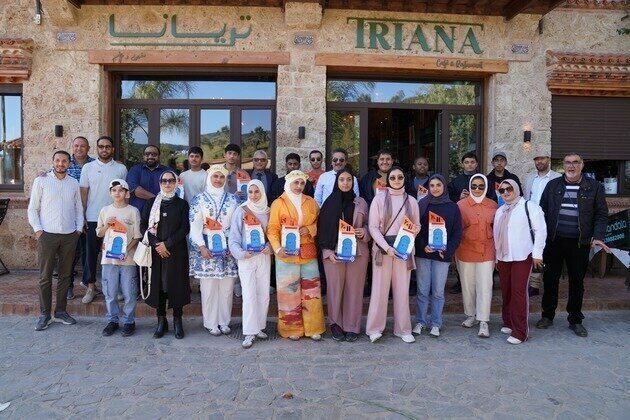US will soon redeploy troops in Somalia: the mission and key goals
The Conversation
29 May 2022, 14:09 GMT+10

The Biden administration in the US recently announced it would be providing a "persistent presence" in Somalia of up to "around 450" US soldiers, reversing a decision taken by US president Donald Trump in December 2020 to withdraw about 700 troops from the country. Security policy expert Paul D. Williams provides an insight into the change of tack.
What prompted the US decision to redeploy in Somalia?
Several factors probably prompted the Biden administration's decision. First, in my view, this isn't a change of policy, it's about logistics. US troops will continue to perform the same tasks as before. But they will once again be based in Somalia rather than outside the country, which required them to 'commute' to work. Commuting was far from ideal.
Second, the security conditions in Somalia appear to be deteriorating with al-Shabaab able to increase its attacks against civilians as well as Somali, African Union and other forces. Following the US withdrawal, one estimate suggested al-Shabaab attacks surged by 17% in 2021 compared to the previous year, including a 32% increase in battles against other security forces.
Third, the Biden administration has been conducting a review of its Somalia policy for well over a year. Perhaps it is now finally drawing conclusions, such as basing some troops inside Somalia is more sensible than having them continue to commute.
Finally, the new Somali president, Hassan Sheikh Mohamud, is very receptive to the move, calling the US "a reliable partner in our quest to (sic) stability and fight against terrorism." A senior adviser to the new president agreed, saying Trump's decision to withdraw was "a wrong" and "hasty decision" which "disrupted counterterrorism operations."
Has the role of the US troops changed?
US policy towards Somalia has not changed; it still includes military as well as political, economic, and humanitarian dimensions. The overall goal is to stabilise the country, contain and weaken al-Shabaab, and build an effective set of state institutions.
The military is often the most visible form of assistance but it should support Washington's overall political objectives.
Military tasks include supporting some of the African Union's troops in the new Transition Mission (ATMIS); training and advising elements of the Somali security forces, including most prominently the Somali National Army's Danab advanced infantry brigade; and participating in joint operations with those forces.
With the consent of the Somali government, the arrangement also permits the US military to engage in unilateral strikes.
The longer-term project is for the US troops to help build an effective set of security services in Somalia. This includes the necessary infrastructure and institutional architecture to make those forces sustainable. It remains to be seen how much emphasis US troops will put on kinetic operations compared to security sector reform.
Why is security such a hard nut to crack in Somalia?
The core problem is the lack of an agreement among Somali political, religious, and business elites on how to govern their country. This is reflected in the lack of a finalised constitution, lack of agreement on the nature of federal governance, and the lack of agreement on Somalia's national security architecture.
Al-Shabaab is one symptom of this lack of consensus about governing Somalia. It has proved a deadly and resilient opponent for over 15 years with the ability to generate the resources, fighters and administrative systems to carry out a persistently high tempo of attacks.
At an operational level al-Shabaab remains the biggest challenge facing US troops. According to the Biden administration's assessment, al-Shabaab has "unfortunately only grown stronger" since Trump's December 2020 decision to withdraw.
A White House official is quoted as saying that al-Shabaab "has increased the tempo of its attacks, including against US personnel" and that its "upward battlefield and financial trajectory" has the potential "to generate more space for the group to plan and ultimately to execute external attacks."
At the strategic level, the challenge for US policymakers is to use the military in a way that increases the likelihood of the war being brought to an end.
In my view, a military defeat of al-Shabaab is highly unlikely. US policymakers should therefore support a negotiated settlement to end the war.
What would success look like?
The goals of the US military in Somalia are to help contain and degrade al-Shabaab forces, strengthen Somali security forces, while simultaneously supporting the African Union mission.
At the operational level, success would entail fewer and less deadly al-Shabaab attacks against civilians and Somali, AU and other forces. This would include fewer large attacks on Somali and AU military bases, and a significant reduction in casualties caused by al-Shabaab. As well as large scale attacks on military bases, the terror group often uses improvised explosives, assassinations, and suicidal attacks by small units of commandos.
At the political and strategic levels, however, success will entail ending the war against al-Shabaab. Since the military defeat of the militants seems highly unlikely, progress would involve encouraging reconciliation between Somalia's elites. This should include starting a political dialogue with al-Shabaab about how to negotiate an end to the war.
However, a major hurdle remains. Al-Shabaab's current leadership has shown few signs of being willing to engage in such a dialogue. Indeed, the last time al-Shabaab's leaders discussed the possibility of negotiating an end to the war was 2018. Even then, their spokesperson described negotiations as a tool for "fragmenting the mujahideen."
In such circumstances, it is hard to see a quick pathway to stabilising Somalia.
Author: Paul D. Williams - Professor of International Affairs, George Washington University 
 Share
Share
 Tweet
Tweet
 Share
Share
 Flip
Flip
 Email
Email
Watch latest videos
Subscribe and Follow
Get a daily dose of Sierra Leone Times news through our daily email, its complimentary and keeps you fully up to date with world and business news as well.
News RELEASES
Publish news of your business, community or sports group, personnel appointments, major event and more by submitting a news release to Sierra Leone Times.
More InformationBusiness
SectionEU official warns of harsh impact from new US tariffs
ATHENS, Greece: As Europe braces for the economic fallout of new U.S. tariffs, a top eurozone official has warned the consequences...
Soaring prices squeeze Bolivian families amid 20-year inflation high
LA PAZ, Bolivia: Rising prices are changing daily life for Bolivians, forcing families to cut back as inflation hits its highest levels...
Nasdaq Composite surges more than 12% as Trump agrees he misfired
NEW YORK, New York - U.S. stocks roared back to life on Wednesday after U.S. President Donald Trump back flipped on his recently announced...
Texas probes WK Kellogg over ‘healthy’ label claims
AUSTIN, Texas: Attorney General Ken Paxton announced over the weekend that the state has launched an investigation into a company,...
Jaguar Land Rover halts US exports amid new tariffs
LONDON, U.K.: Jaguar Land Rover has become one of the first major carmakers to pause exports to the United States in response to the...
Medicare backs off Biden plan for weight-loss drug coverage
WASHINGTON, D.C.: The Centers for Medicare & Medicaid Services (CMS) says it will not go ahead with a plan from the Biden administration...
Africa
SectionUAE, Brazil partner to train agricultural professionals in Angola, Guinea-Bissau
ABU DHABI, 10th April, 2025 (WAM) -- In a landmark initiative, the United Arab Emirates and the Brazil Africa Institute (IBRAF) are...
Mauritius hosts SolarX Accelerator Programme in partnership with ISA, Business Mauritius
Moka [Mauritius], April 10 (ANI): Mauritius has launched the SolarX Accelerator Programme in partnership with the International Solar...
UAE: Middle East Energy 2025 concludes in Dubai
Dubai [UAE], April 10 (ANI/WAM): The 49th edition of Middle East Energy, the region's largest energy exhibition, concluded at Dubai...
(SP)EGYPT-CAIRO-FOOTBALL-CAF CONFEDERATION CUP-QUARTERFINAL
(250410) -- CAIRO, April 10, 2025 (Xinhua) -- Nabil Emad (R) of Zamalek vies for the ball during the 2024/25 Confederation of African...
Harry Brook puts country first, ready to lead England's white-ball revival
London [UK], April 10 (ANI): Harry Brook has made it clear that no amount of money will stand in the way of his commitment to leading...
UAE youth participate in cultural programme in Morocco
SHARJAH, 9th April, 2025 (WAM) -- A group of young people from the UAE will be taking part in a special cultural exchange programme...













